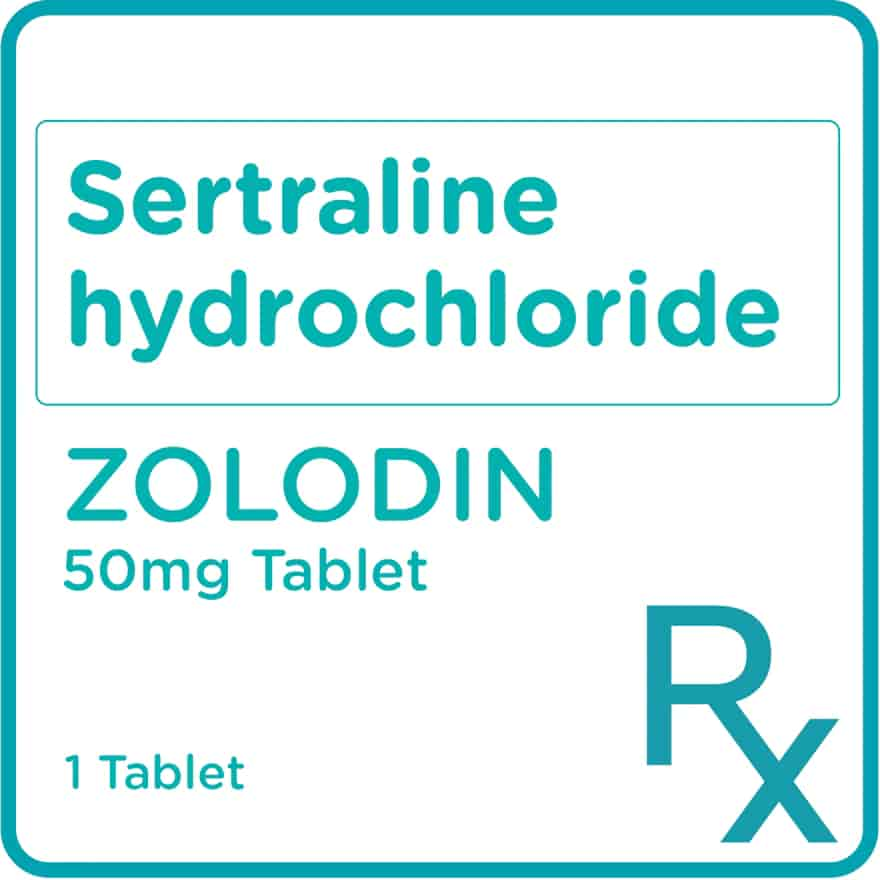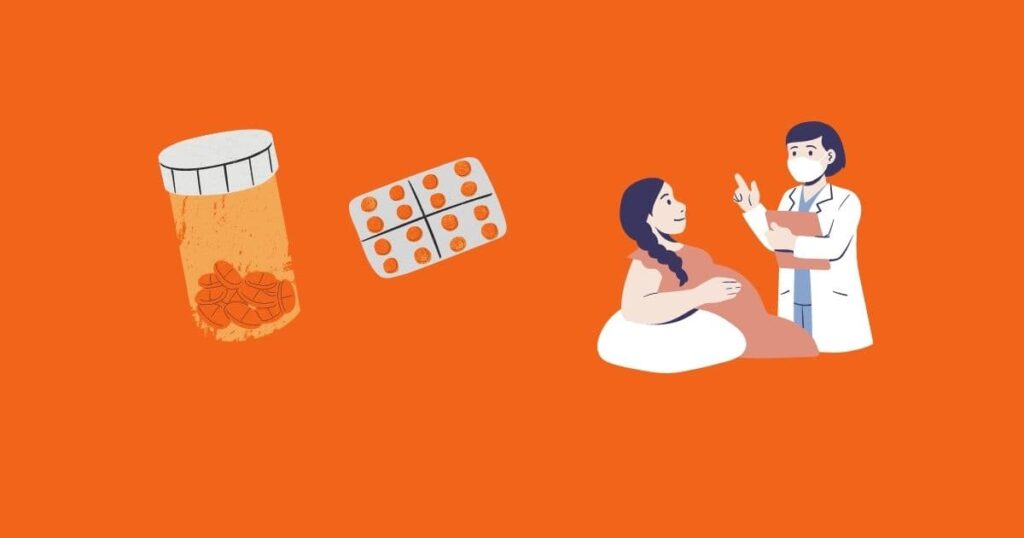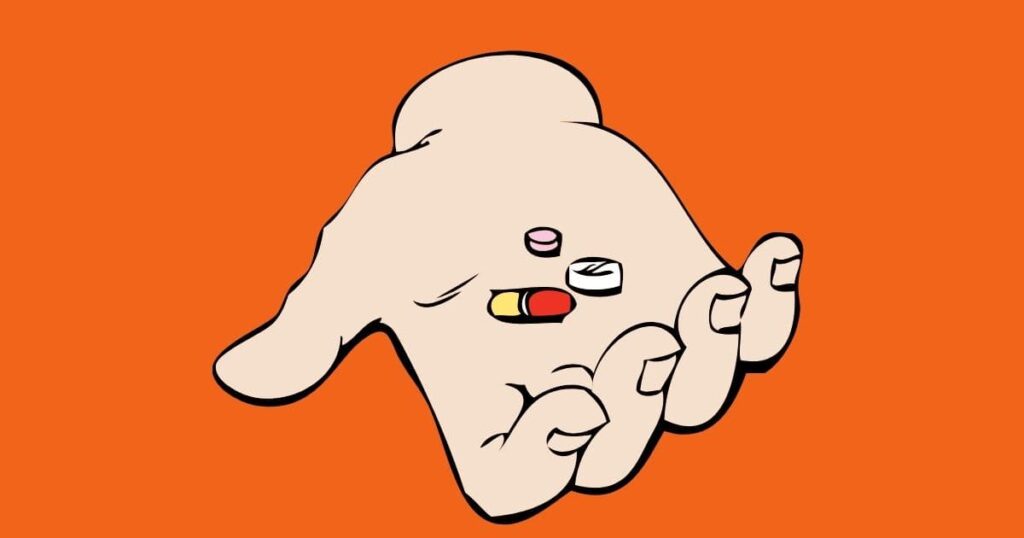Zolodin: Benefits, Uses, Side Effects, Precautions And More
Zolodin is in a class of antidepressants called selective serotonin reuptake inhibitors (SSRIs).
It works by increasing the amount of serotonin.
It is used to treat depression, obsessive-compulsive disorder, panic attacks, and other psychological problems.
The active ingredient of the drug is sertraline.
It can also be used to treat the following conditions:
- Post traumatic stress disorder
- Social anxiety disorder
- Mood swings
- Irritability
- Alleviating the symptoms of premenstrual dysphoric disorder (menstrual discomfort)
- Major depressive disorder

What Will We Learn?
How Is Zolodin Used?
Zolodin comes as a tablet to be taken by mouth.
Your doctor will determine the dose according to the symptoms of your condition.
Your doctor may prescribe the starting dose of the drug at 50 mg per day, with increments of 50 mg at intervals of at least one week if necessary, up to a maximum of 200 mg per day.
The usual dose is usually one tablet in the morning and evening.
If you are using this medicine to treat premenstrual dysphoric disorder, you may take it once a day, every day of the month, or on certain days of the month.
Make sure to take zolodin at the same time every day.
Be sure to carefully follow the directions on the prescription label on the box of the medicine and ask your doctor or pharmacist to explain any parts you do not understand.
Do not take less or more than your doctor recommends as this can increase the risk of side effects.
If your doctor has prescribed zolodin for you, the initial dose will likely be low and may be increased gradually, but not more than once a week.
You may need to wait several weeks or longer to see the benefit of this medicine.
Continue to take this medicine even if you feel well, and do not stop using this medicine without talking to your doctor.
If you stop this or other branded antidepressants suddenly, you may experience the side effects listed below:
- Nausea
- Sweating
- Depression
- Mood changes
- Crazy or abnormally excited mood
- Irritability
- Anxiety
- Confusion
- Dizziness
- Headache
- Fatigue
- Seizures
- Tinnitus
- Tingling in arms, legs, hands or feet
- Drowsiness
- Difficulty falling asleep or staying asleep.
Sertraline, the substance in the drug, is also sometimes used to treat headaches and sexual problems.
It should be noted that this drug can also be prescribed for different uses.
If your doctor has prescribed this medicine for a different disease, strictly follow his or her instructions.
Contact your doctor if you have any of the conditions listed below:
- Tell your doctor if you are allergic to sertraline in the medication, any other medication, any ingredient in sertraline preparations, or latex (available in a concentrated dropper). Ask your pharmacist for a list of ingredients in this medicine.
- Tell your doctor if you are taking or have stopped taking monoamine oxidase (MAO) inhibitors, including phenelzine (Nardil), isocarboxazid (Marplan), linezolid (Zyvox), methylene blue, selegiline (Emsam, Zelapar), and tranylcypromine (Parnate).
- If you are using pimozide (Orap) or have taken it within the last 2 weeks. Your doctor will tell you that you should not use this medicine in such a situation.
- If you are using disulfiram (Antabuse), talk to your doctor before using this medicine.
- Even if you stop using Zolodin, you should wait at least 2 weeks before you start taking an MAO inhibitor.
- If you have recently had a stroke or heart attack
- If you have high blood pressure
- If you have bleeding problems
- If you have low sodium levels in your blood
- If you have or have ever had liver or seizures, kidney or heart disease
- If you are pregnant (especially if you are in the last few months of your pregnancy, are planning to become pregnant, or are breastfeeding).
- If you become pregnant while taking zolodin, call your doctor. This medicine may cause problems in newborns after birth, especially if taken during the last months of pregnancy.
- You should know that Zolodin may make you sleepy, so do not drive until you know how the medicine will affect you.
- Ask your doctor about the safe use of this medication with alcohol.
- Talk to your doctor about an eye exam before using this medication because zolodine can cause angle-closure glaucoma.
- Call your doctor right away or get emergency medical treatment if you have eye pain, nausea, vision changes such as seeing colored rings around lights, swelling or redness in or around the eye.
Pregnancy And Breastfeeding

Unfortunately, scientific studies on the effect of zolodine on pregnant women are very limited.
Therefore, if you are planning to become pregnant, are pregnant or breastfeeding, contact your doctor before using the drug.
Some scientific studies have suggested that sertraline may occasionally affect the development of the baby’s heart.
Taking sertraline, the active ingredient in the drug, by pregnant women in the weeks before delivery can sometimes cause short-term withdrawal symptoms and very rarely respiratory problems in your baby.
If you continue to use the medicine Your baby will be checked after birth and extra care will be given if needed.
Use of this medicine during the last months of pregnancy may slightly increase your risk of bleeding.
This side effect is rare and is not a reason to stop taking sertraline if you are pregnant.
It is important to treat mental health issues well during pregnancy as they can affect the health of both your baby and you.
As a result, the use of this drug depends on the severity of your disease and you can use it if your doctor recommends it.
In some cases, your doctor may also tell you that you should not use this medicine.
There are no studies on the use of zolodin while breastfeeding, but sertraline, the active ingredient in the drug, is potentially safe while breastfeeding (if your doctor says your baby is healthy).
It is one of the types of antidepressants that should be used while breastfeeding and has been used by many breastfeeding mothers without any problems.
This ingredient passes into breast milk in very small amounts and has been associated with adverse effects in the underfed infant.
It is more important that you take this medicine to make you feel better.
It will benefit both your baby and you while breastfeeding.
Contact your doctor if you notice the following changes in your baby while using this medicine:
- If your baby is not feeding as usual
- If your baby seems unusually sleepy
- If your baby is irritable or colic
- If you have other concerns about your baby
In short, if you are pregnant or breastfeeding while using this medicine, you should definitely discuss this with your doctor.
What Are The Side Effects Of Zolodin?
Zolodin may cause side effects.
Tell your doctor if any of these side effects are severe or do not go away:
- Dry mouth
- Heartburn
- Loss of appetite
- Weight changes
- Dizziness
- Excessive tiredness
- Headache
- Nervousness
- Nausea
- Diarrhea
- Constipation
- Vomiting
- Difficulty falling asleep or staying asleep
- Uncontrollable shaking in any part of the body
- Decreased sex drive, male sexual problems, decreased sex drive, inability to get an erection or delayed or absent ejaculation
- Decreased sex drive or delayed orgasm, female sexual problems or inability to have orgasm
- Excessive perspiration
Serious side effects are listed below:
- Seizures
- Abnormal bleeding or bruising
- Rash
- Hives
- Swelling
- Difficulty breathing
- Weakness, headache, unsteadiness, confusion, or memory problems
- Hallucinations, agitation, fever, sweating, confusion, fast heartbeat, shivering, severe muscle stiffness or twitching, loss of coordination, nausea, vomiting, or diarrhea
The use of this drug may reduce appetite and cause weight loss in children.
If this antidepressant is to be used in children, the doctor will carefully monitor the child’s growth.
Talk to your child’s doctor about the risks before giving this antidepressant to your child.
Zolodin may cause other side effects.
Be sure to ask your doctor any questions you may have.
Other Drugs And Zolodin

Talk to your doctor before using zolodin if you are using any of the following medicines:
- Amiodarone (Nexterone, Pacerone)
- Amphetamines
- Anticoagulants (“blood thinners”) such as warfarin (Coumadin, Jantoven) and heparin
- Aspirin and other nonsteroidal anti-inflammatory drugs (NSAIDs) such as ibuprofen (Advil, Motrin) and naproxen (Aleve, Naprosyn)
- Tomoxetine (Straterra)
- Buspirone, chlorpromazine
- Clopidogrel (Plavix)
- Dextromethorphan (found in many cough medicines; in Nuedexta)
- Fentanyl (Actiq, Fentora, Lazanda et al)
- Droperidol (Inapsine)
- Erythromycin (EES, Eryc, Ery-tab et al.)
- Fosphenytoin (Cerebyx)
- Iloperidone (Fanapt)
- Lithium (Lithobid)
- Irregular heartbeat medications such as propafenone (Rythmol) and flecainide
- Metoprolol (Lopressor, Toprol XL)
- Medicines for migraine headaches such as rizatriptan (Maxalt), almotriptan (Axert), eletriptan (Relpax), frovatriptan (Frova), naratriptan (Amerge), sumatriptan (Imitrex), and zolmitriptan (Zomig)
- Mefloquine
- Methadone (Dolophine, Metadose)
- Moxifloxacin (Avelox)
- Nrizatriptan (Maxalt)
- Ebivolol (in Bystolic, Byvalson)
- Pentamidine (Nebupent, Pentam)
The above list is not a complete list.
Therefore, give your doctor a full list of vitamins, supplements, and medications you use.
Tell your doctor if you are using any other antidepressants.
Antidepressants can cause serious problems when used incorrectly, so the doctor’s instructions should be strictly followed.
You can also read our article on Coldryl Tablets used in the common cold.
